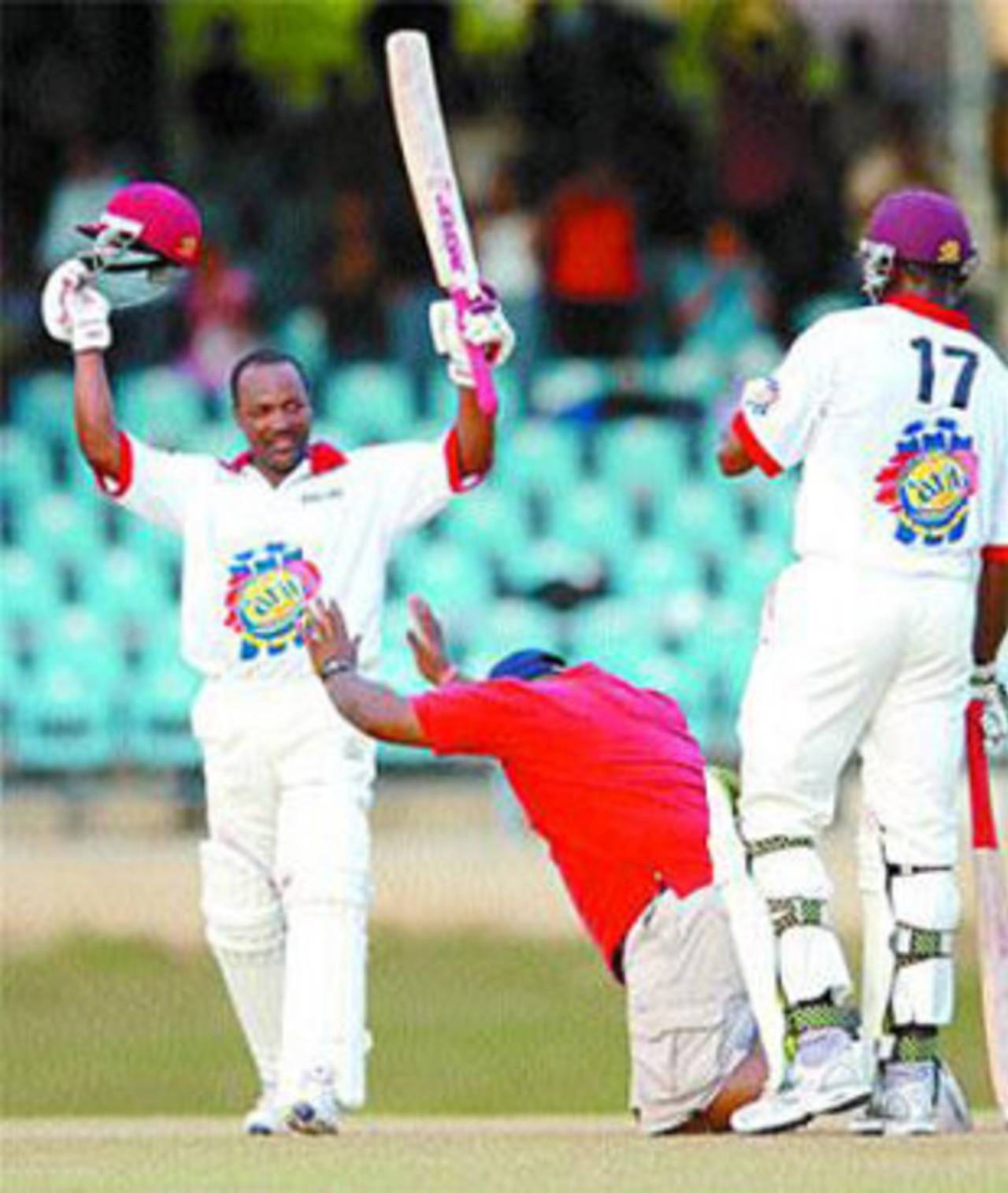The West Indies’
collective Test batting average against spin since Brian Lara’s retirement from international cricket in April 2007 – comfortably the worst such figure by any team other than Bangladesh.
In that time, West Indies have averaged
30.5 against pace bowlers – still not world-beating, as their results would vociferously and conclusively testify, but nevertheless 17% better than their average against spin. Since April 2007, all the other Test teams combined have averaged 34.5 against pace, and 39.5 against spin – the rest of the non-Caribbean planet has been 14% better against spin than pace.
Thus, since Lara dragged his magic bat away from the Test match arena for the last time, West Indies have been 11% worse than their peers against pace, but a staggering 34% worse against spin. All in a period when spinners have been collectively less effective in Tests than at any time since the 1940s. Their dedication to not playing spin very well has taken them to statistical troughs that no major Test nation has explored for generations.
No wonder R Ashwin must have punched the air with excitement after being told he would make his debut against them. And you can sympathise with Devendra Bishoo when he wears his “Why am I never allowed to bowl at my own team?” frown.
The decline of Caribbean batsmanship against slow bowling is highlighted by the fact that from 2000 until Lara’s final Test West Indies averaged 27.8 against pace and 34.4 against spin – a 24% margin in favour of playing spin (similar to their performance through the 1980s and 1990s). In electoral terms, there has been a government-toppling swing towards the West Indians playing spin badly.
The major movers in the pace v spin batting market have been England, who had steadily averaged in the mid-to-low 30s against tweakers and twirlers since the 1960s, but who, since April 2007, have led the universe, averaging 47. Their improvement has been built upon hard work, sound planning, and the extremely wise tactic of not facing Warne, Muralitharan and Kumble anymore, and instead taking on Doherty, Mendis and Mishra. Of all the things the ECB have got right in helping the national team to the top of the Test Match tree, this has been one of their most influential moves.
Also: The number of Test centuries scored by Ricky Ponting in 62 Tests between August 2001, when he broke a 20-month century drought, and December 2006, when his 142 after being dropped early on by Ashley Giles sparked Australia’s spectacular/gut-rendingly-harrowing (delete according to allegiance) Adelaide comeback victory over England. In that purplest of five-year patches, the Baggy-Green icon averaged 73.
In his 45 Tests over five-and-a-half-years before this halcyon period, Ponting had scored seven hundreds in 45 Tests, and averaged 40. In 48 Tests in just under five years since then, he has scored six hundreds and averaged 39 (including just one century in his last 23 Tests, none in his last 13, and no half-centuries in his last six) (and that one century would have ended exactly 100 runs before it reached 100, but for Mohammad Amir grassing a chance that most schoolboys would have taken) (given that Amir was the same age as a schoolboy at the time, that is a pertinent consideration).
Ponting’s career has taken on an almost perfect symmetry – and one inverse to Brian Lara’s. Lara averaged 60 in his first 33 Tests over five years, 60 in his final 54 Tests over five years, and over the five years in the middle, he averaged 39 in 47 Tests. Both men have overall career averages of 52, which goes to show that even the greatest players have it in them to impersonate Taufeeq Umar for half a decade.
Also: Faoud Bacchus’ Test batting average. Does this constitute a disappointing average for someone with a highest Test score of 250, or does 250 constitute an amazingly brilliant highest score for someone with a Test average of 26? I will leave that to the philosophers and/or lawyers.
The 250 was Bacchus’ only Test century, meaning that he scored more in his single three-figure innings than Tendulkar, Greg Chappell, Boycott, Gavaskar, Border, Kallis and Steve Waugh have done in their 230 collective hundreds, and more than any Englishman scored in 4444 innings between the Lord’s Test of 1990, when Gooch plundered his way to 333, and the Edgbaston Test of last summer, when Cook plinked his way 293.
Andy Zaltzman is a stand-up comedian, a regular on the BBC Radio 4, and a writer
